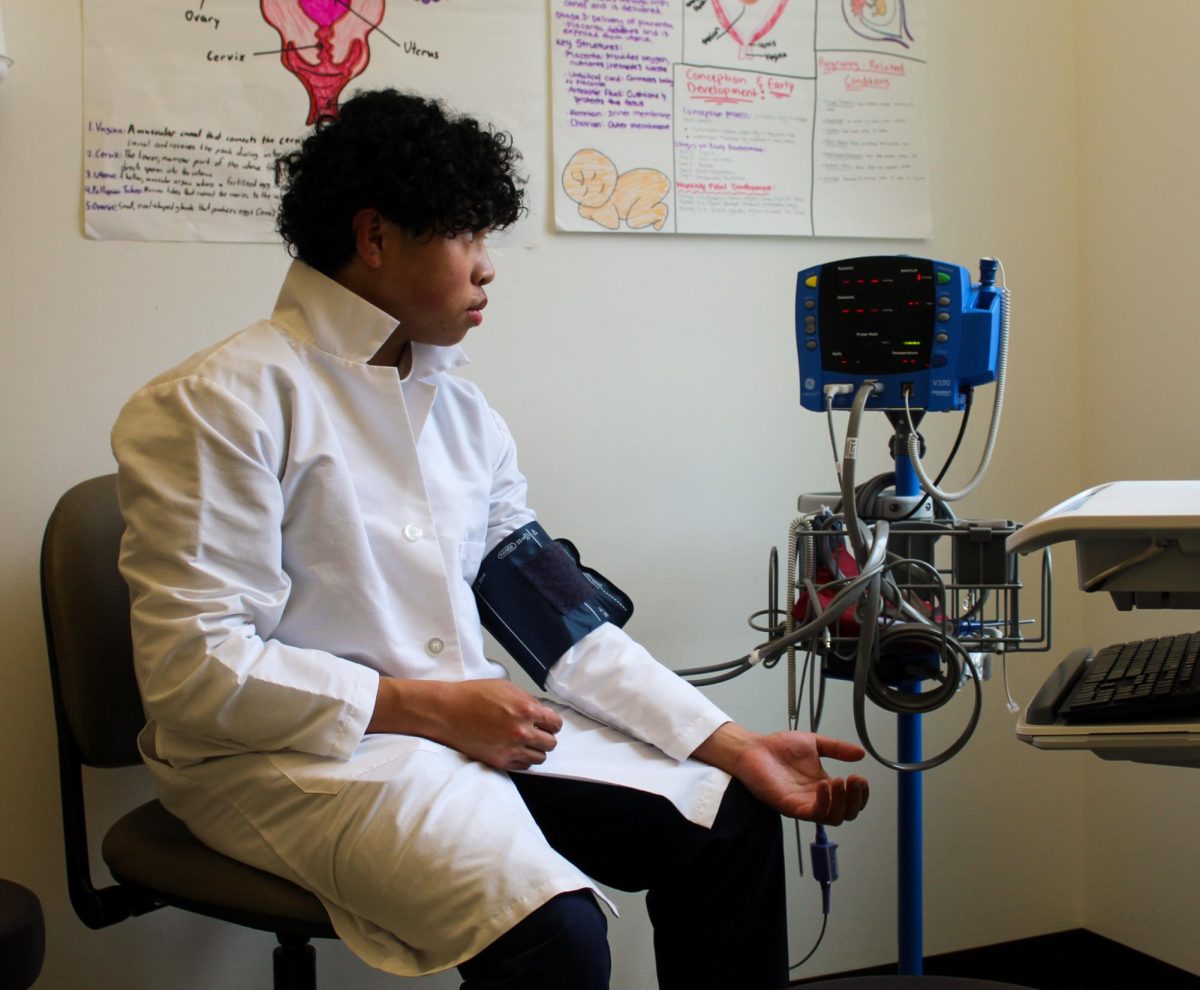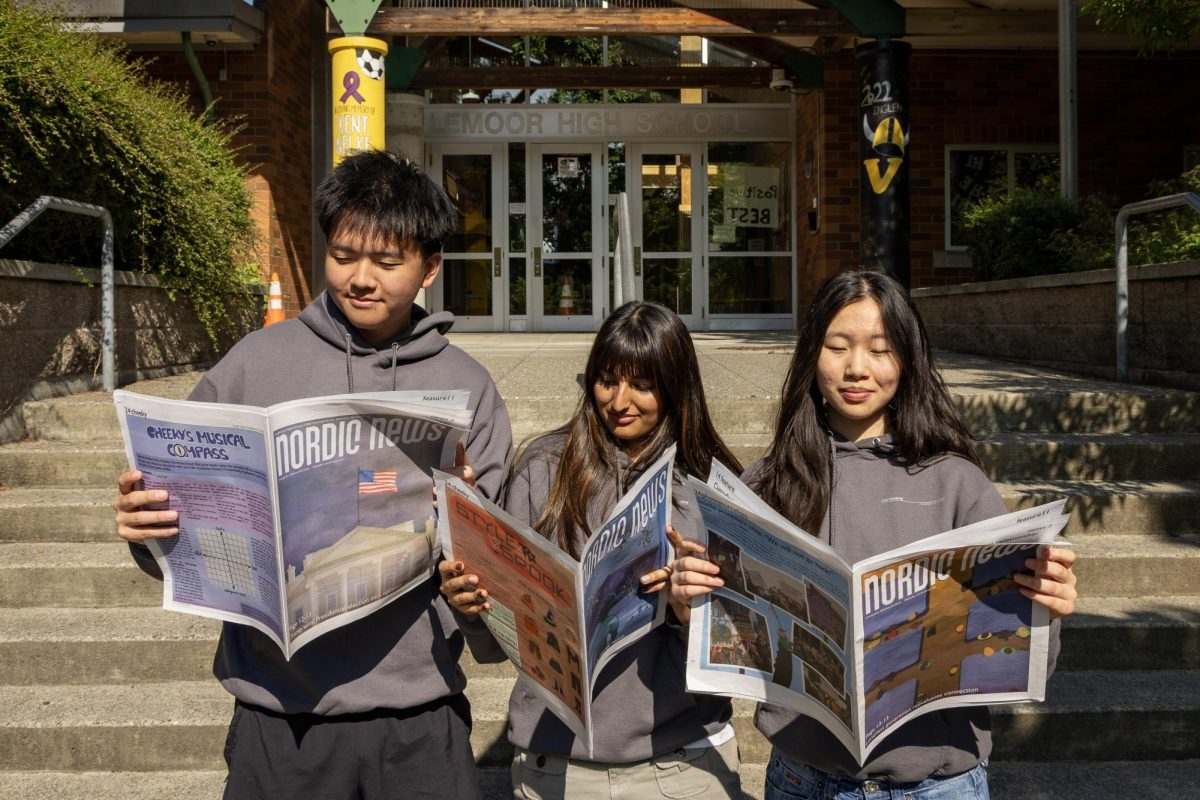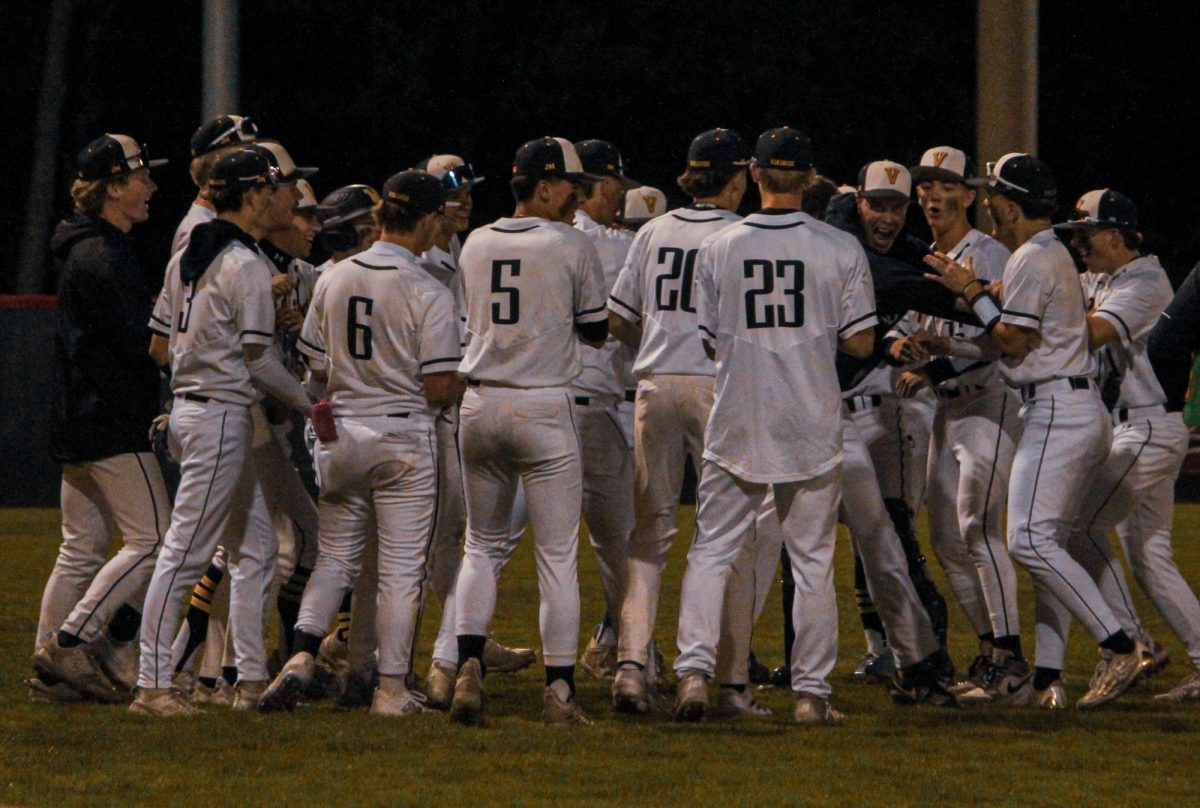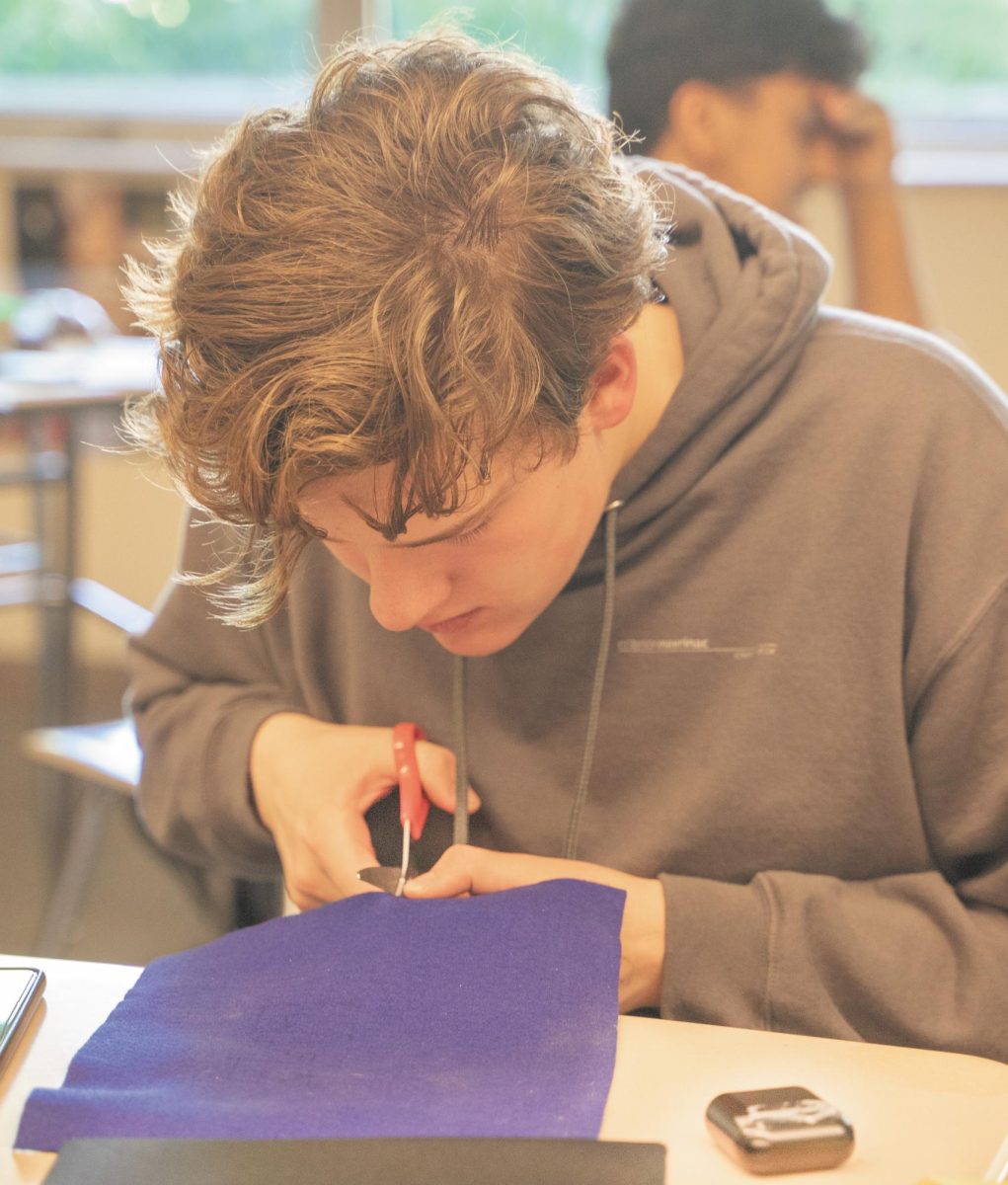For many high school graduates, applying to college is the next practical step in a long-standing family tradition. For first-generation college students, however, it marks the beginning of one. First-gen students are typically the first in their family to pursue a four-year college degree. While many other students get assistance from members of their family who have already attended college, first-gen students lack that resource to help guide their application process.
According to the think tank Brookings, over 40% of incoming undergraduate students and one-third of current graduate students are first-generation. About half of English and AVID teacher Omar Omar’s (he/him) senior AVID class is made up of first-gen students. AVID is a college readiness course that carries throughout all four years of high school and guides students through college visits, applications, essays, scholarships, FAFSA and other financial aid.
“Applying to college is stressful and difficult, and there’s a lot of questions, even if you’ve had parents or guardians or siblings that have attended college,” Omar said. “Difficulty and challenges are amplified if you are the first person in your family to do it.”
As a first-generation college student himself and the oldest of his siblings, Omar said that first-gen students can often experience intense family and personal pressures to succeed.
“I remember in high school, when I was talking with friends about college, I remember my answer was, ‘I don’t have a choice. I have to go to college,’ just because it was something that was instilled in me from a very young age. It was something that I always knew I was going to do,” Omar said.
Although not a part of AVID, senior Victor Bautista (he/him) is also the first in his family to pursue a college degree. While such expectations about the future can be stressful, Bautista said that he still feels very appreciative to his parents for all they’ve done to provide him the opportunity to attend the University of Washington in the fall to study construction management.
“They made sure that I should be grateful multiple times. And it’s true. I should be grateful because they made a big sacrifice, leaving behind their whole family and what they know to be coming into a random, unknown country for them, I appreciate what they’ve done,” Bautista said.
Another first-gen senior, Alex Arreola (he/him), also plans to attend the University of Washington to major in biology and said he had to turn to a variety of sources for assistance throughout the college application process.
“I found a lot of helpful resources, and especially in the age of social media, I felt like, even those social media apps — even TikTok and Instagram — those actually proved to be pretty helpful, because there was just so many quick videos about super niche questions that I had,” Arreola said.
Although Arreola found guidance on his own, he said that because neither of his parents were experienced with American school systems or the college application process, he still felt slightly disadvantaged in navigating academics compared to his peers.
“It was definitely a lot harder because in a way I didn’t have as much guidance. Because my parents didn’t really know,” Arreola said. “They still don’t know anything about college. And it was like even though I’ve never been to college, I was the one that had to do the most explaining to my parents.”
Arreola said that as a first-gen student, it can sometimes feel uncomfortable to turn to others for assistance. He said his greatest piece of advice to other first-generation students is to be humble; fearing embarrassment can discourage students from reaching out for help and prevent them from accessing helpful application information. Arreola often found guidance through the parents of his friends that had attended university.
“Even though I was embarrassed, I definitely did ask them a lot of questions. And that was probably where I got my most useful information and help – from those parents and other adults that I can trust. So going to them first and not being afraid to ask them is probably the best way.”
Although his parents were unable to assist with the informational aspect of college, Arreola said that their emotional and moral support was just as valuable to him. Bautista said that it is important that parents try to support their kids in other ways if they are inexperienced with the application process.
“Be patient, be supportive. Obviously, you do have to push (your kids) a little bit,” Bautista said. “Just try to be a little bit understanding.”

















